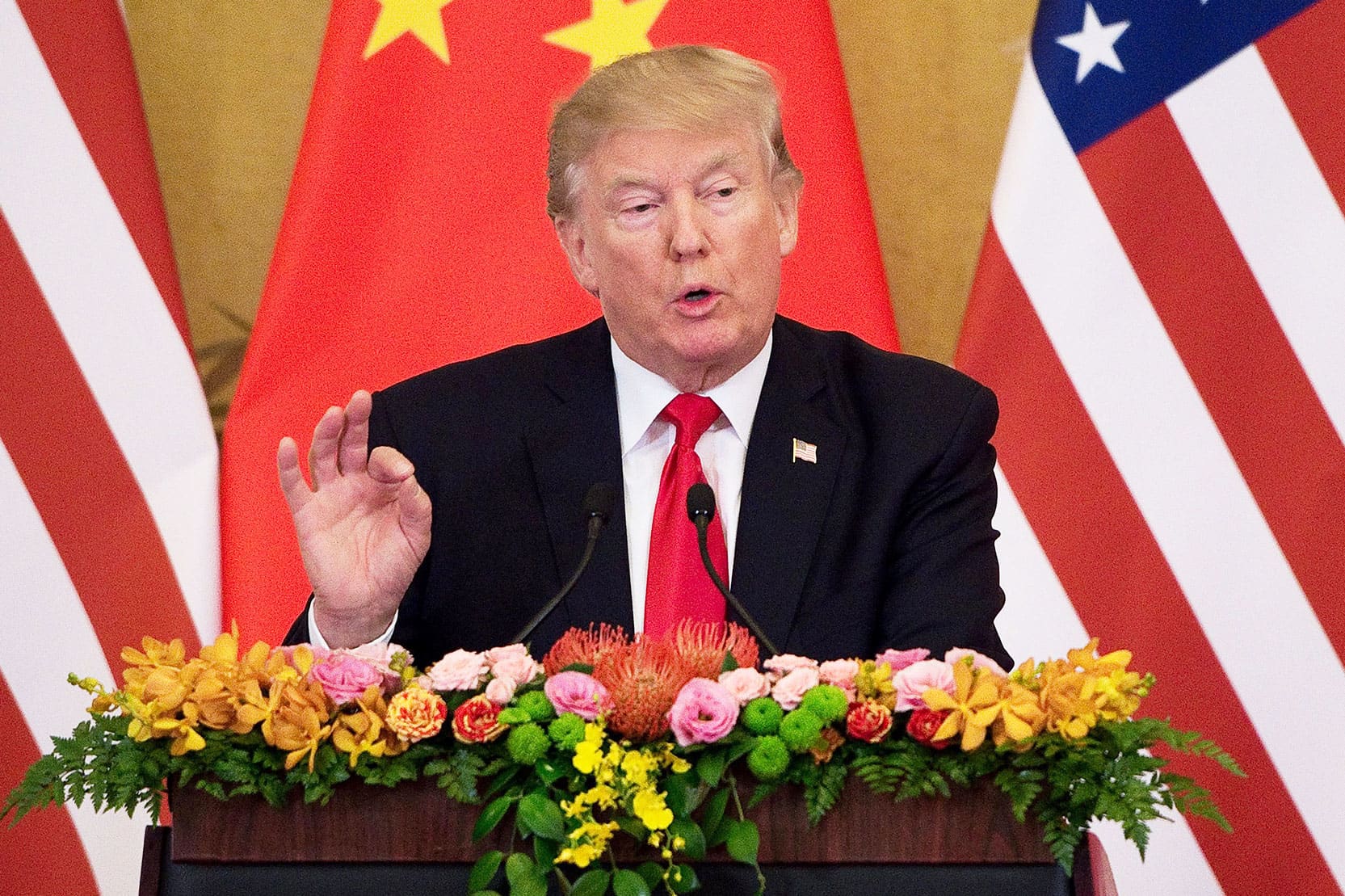
The U.S. economy may be pushed into a "Trump recession" if Washington follows through on its threat to impose new tariffs on billions of dollars worth of Chinese goods, the president and CEO of a U.S.-based trade organization said Tuesday.
Speaking to CNBC at the CES Asia technology conference in Shanghai, Gary Shapiro from the Consumer Technology Association called tariffs an "economic fence" and said they are "not a good strategy" to help Washington resolve its trade dispute with Beijing.
"They are taxes, they hurt consumers, they hurt American companies," Shapiro said, noting that positive assessments of U.S. President Donald Trump's hard-line tariff approach are not widely held by economists outside the White House.
As Beijing and Washington remain deadlocked in an increasingly aggressive trade dispute, some economists have said that tariffs on Chinese goods — which Trump has repeatedly said will benefit the U.S. — may eventually backfire and tip the U.S. economy into a recession.
Despite such fears and a worse-than-expected jobs data for May, U.S. Treasury Secretary Steven Mnuchin told CNBC on Sunday that the U.S. economy is still the "bright spot of the world" — and he doesn't see any signs of an economic downturn.
Trump on Monday renewed his tariff threats on China after Myron Brilliant, the head of international affairs at the U.S. Chamber of Commerce, told CNBC that Trump's "weaponization of tariffs" hurts the U.S. economy and "creates uncertainty" with trading partners.
Trump confirmed that an additional raft of levies will be slapped on Beijing if Chinese President Xi Jinping does not show up at the G-20 meeting in Japan — an event investors and economists will be watching for signs of a breakthrough in the trade impasse.
Huawei dispute could 'escalate out of control'
The current tensions between the U.S. and China appeared to reach a new height when Washington placed Huawei on a U.S. entity list in May, limiting the Chinese telecom giant's ability to purchase goods from American firms.
While the U.S. Commerce Department has granted a 90-day reprieve to Huawei, China has already been ramping up development of its own semiconductor industry — which could ultimately hurt the profits of U.S. companies.
According to Shapiro, restrictive measures in the tech space could escalate "out of control" and cause both consumers and U.S. chip companies to be "trampled."
The blacklisting of Huawei will not only push China to become more closed off to the rest of the world, but will also hinder the United States' ability to maintain "world leadership" in the technology market, Shapiro told CNBC's Arjun Kharpal.
"We have these great American chip companies ready to sell to all around the world," he said. "And the fact is, I think the U.S. policy may be really pushing China to do everything by itself, and not only put up walls around China, but we're putting up an economic fence around the United States."
If the U.S. wants to advance "and be innovative, maintain world leadership, we have to be out there in the world marketplace," he added.
President Donald Trump speaks during a press conference with China's President Xi Jinping at the Great Hall of the People in Beijing on November 9, 2017.
Nicholas Asfouri | AFP | Getty Images
Tech bifurcation possible
As tensions between the world's two largest economies rise, experts have said a bifurcation in the global internet space — otherwise known as the "splinternet," with two different systems of technology and regulations — has become increasingly likely.
Shapiro echoed that sentiment, saying that a "standards bifurcation" in tech is a "possibility."
"We see in electricity, different outlets in different regions of the world," he said. "There has been an economic fence put up around China in terms of Internet access,."
However, Shapiro said he believes that countries like the U.S., Europe, Canada, Australia and New Zealand share a "cultural bond" that will drive them together.
"China has a good strategy for China — 1.4 billion people; they feed them, they do good things," Shapiro said. "But the reality is, it's a very insular strategy. That is not something I want as an American."
—CNBC's Arjun Kharpal contributed to this report.
Read More
Post a Comment